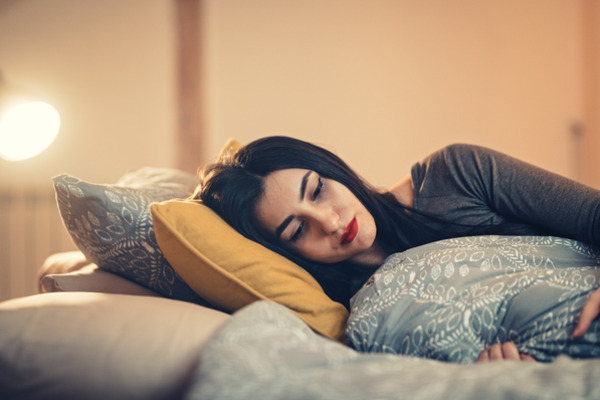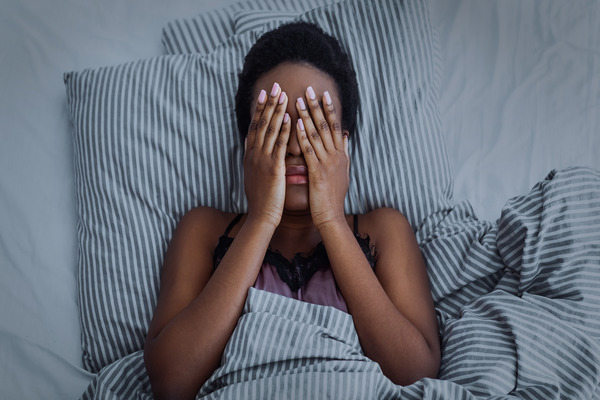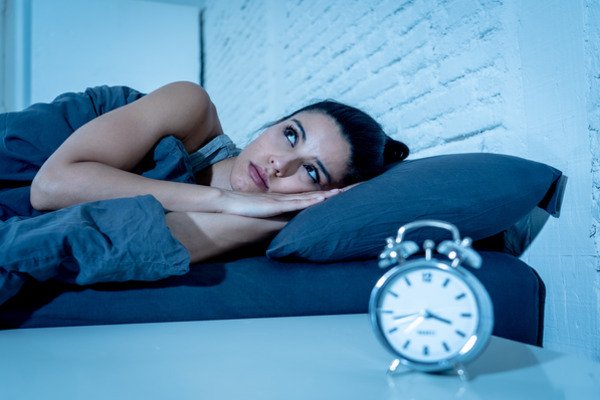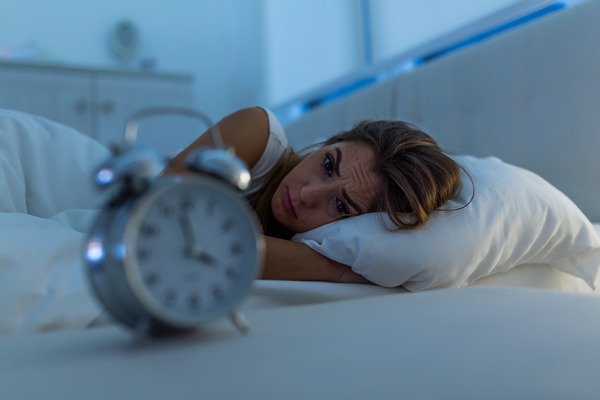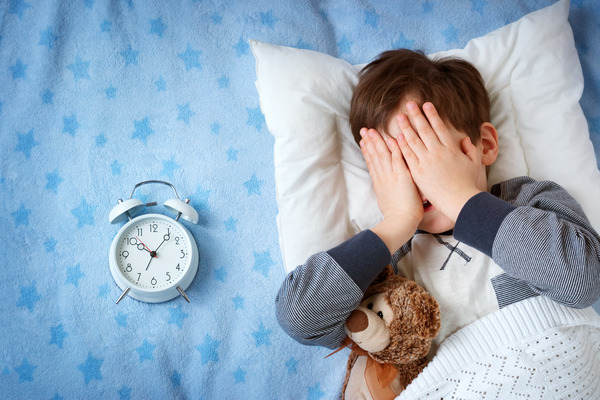Are you sleepy but can’t sleep and don’t know why it is? Discover the different types of insomnia and their possible causes.
Insomnia is a very common problem in the population. Specifically, it is estimated that between 6 and 10% of adults suffer from insomnia symptoms. Taking into account that sleep has essential functions related to memory, learning, the immune system, etc., difficulty sleeping It can lead to different consequences, both physical and psychological. In fact, sleep disorders are frequently associated with depressive and anxious symptoms that must be taken into account in treatment.
Sometimes, we can come to think that insomnia is a problem that occurs independently. However, in many cases, insomnia is accompanied by another disorder or illness. The reality, therefore, is that the causes of insomnia can be varied and do not depend solely on one factor but rather personal characteristics, the environment, etc. may influence the development of this disorder. If you have been feeling for a long time that “it doesn’t give you life ”, resting poorly, you feel irritable, tired and so on, stay and read this article to discover the possible causes of your situation.
What is insomnia? Symptoms
He insomnia It is considered a sleep disorder that is included in the DSM-5 (Diagnostic and Statistical Manual of Mental Disorders) and that causes difficulties in falling asleep or maintaining it. Its severity may vary depending on how long the symptoms detailed below persist:
- Feeling of dissatisfaction with the quantity or quality of sleep, feeling tired throughout the day.
- Difficulties getting started the dream In the case of children, there are difficulties in starting it without the presence of the caregiver.
- Problems staying asleep during the night, that is, frequent awakenings or problems falling back to sleep after waking up.
- Waking up very early and being unable to return to sleep.
- The symptoms cause discomfort whether at work, social, academic, behavioral, etc.
- The difficulties are not associated with environmental conditions, that is, the person is in an environment that has favorable characteristics for sleeping but is still unable.
- It is not due to the effects of a substance, be it a drug or medication.
Types of insomnia:
Insomnia can be classified based on several factors. However, two are commonly differentiated types of insomnia :
- Transient or short-term insomnia: Transient insomnia occurs when the person has difficulty sleeping for less than 7 days and short-term insomnia lasts for at least one month but less than three months. Both types are commonly associated with changes in the environment, changes in schedule and psychological factors such as, for example, work problems, family problems, etc.
- Chronic insomnia: Chronic insomnia is diagnosed when the person has sleeping problems at least 3 times a week for three months or more. It has been shown that the majority of people who have this type of insomnia are due to medical, psychiatric or behavioral problems, although there are also people who suffer from it and do not have any type of pathology.
Causes of insomnia:

As we have already mentioned, insomnia is not due to a single factor but its causes can vary depending on the person who has this sleep disorder. It is for this reason that if sleeping difficulties occur that persist over time, it is important to go to a specialist so that he can plan a treatment according to our needs and situations. Although each case must be studied by a professional, there are a series of factors that have been related to this disorder and that could explain its appearance:
- Stressful situations: Certain stressful situations such as, for example, the death of a loved one, emotional states of anxiety, etc. They can interfere with sleep. Normally, insomnia derived from situational aspects disappears when the stress decreases or when the stressful situation ceases. However, in some cases, despite being a temporary situation, treatment is required in order to prevent insomnia from becoming chronic.
- Night work shifts: Having a work day during the night or with rotating shifts can cause insomnia. This type of insomnia normally occurs in people over 50 years of age and the symptoms usually worsen if the same work schedule is maintained. The associated symptoms usually disappear when the person changes jobs or work routine.
- Poor sleep hygiene: Sleep hygiene is a series of recommended practices that promote good rest. Poor sleep hygiene can interfere negatively, so it is important to take into account the factors that can make our sleep quality. Some of the recommendations are: wake up and go to bed at the same time, avoid long naps during the day, avoid doing exciting activities just before going to sleep, eat at the same times, avoid heavy meals at night, etc.
- Drug consumption: In some cases, sleeping difficulties are associated with the consumption of medications that have the adverse effect of sleep disturbances. In this case, it cannot be said that the person has insomnia but it is important to consult a qualified professional in the case of presenting this type of symptoms after starting pharmacological treatment.
- Psychological disorders: Various psychological disorders such as depression, personality disorders, generalized anxiety disorder, post-traumatic stress disorder, etc. They are associated with insomnia, especially that which lasts for a long period of time (chronic insomnia). It is for this reason that it is important to go to a professional since sometimes, the symptoms associated with sleep are the first thing that is detected but there may be a disorder that is maintaining these symptoms. Difficulty falling asleep
- Addictive behavior disorders: It has been found that between 10 and 15% of people who have an addictive disorder also have insomnia and that this is usually chronic. This is because addictions usually alter the normal phases of sleep, producing as effects a decrease in total sleep time, an increase in the time it takes to fall asleep, etc.
- Organic diseases: Various diseases, whether chronic or temporary, can cause insomnia, such as hypothyroidism, chronic pain, allergic rhinitis, asthma, gastroesophageal reflux, etc.
Insomnia is a disorder that can appear for multiple reasons. This is why measures that work for one person may not necessarily work for another. Therefore, it is essential to go to a professional so that they can evaluate the origin, taking into account the severity and the length of time that the symptoms have been present and, therefore, plan a treatment. treatment for insomnia personalized. If you have been having problems falling or staying asleep for a short time, it is essential that you go to a specialized professional to help you take measures as soon as possible and thus prevent the chronicification of this disorder.

